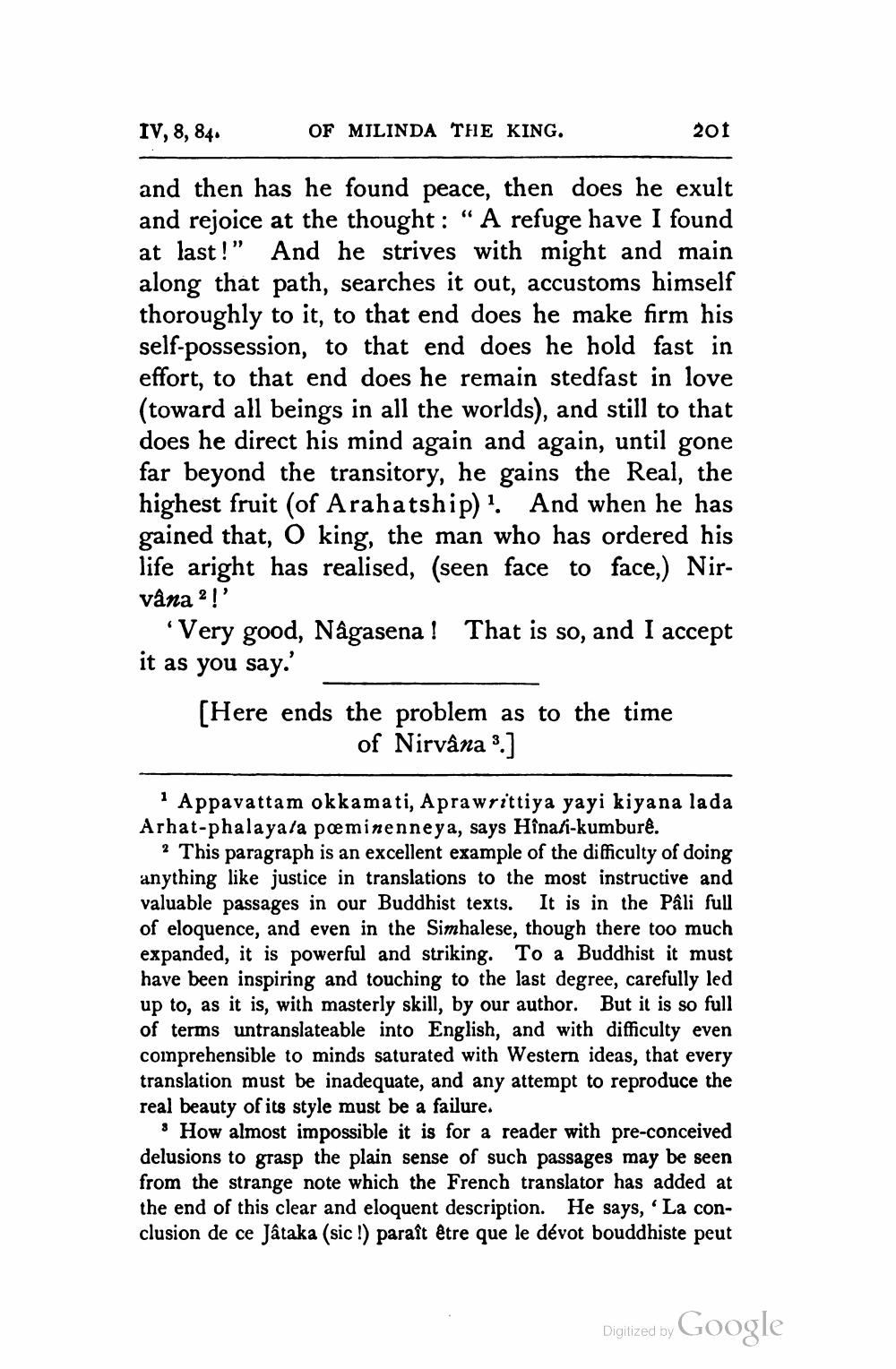________________
OF MILINDA THE KING.
IV, 8, 84.
and then has he found peace, then does he exult and rejoice at the thought: "A refuge have I found at last!" And he strives with might and main along that path, searches it out, accustoms himself thoroughly to it, to that end does he make firm his self-possession, to that end does he hold fast in effort, to that end does he remain stedfast in love (toward all beings in all the worlds), and still to that does he direct his mind again and again, until gone far beyond the transitory, he gains the Real, the highest fruit (of Arahatship). And when he has gained that, O king, the man who has ordered his life aright has realised, (seen face to face,) Nirvâna 2!'
201
'Very good, Nagasena! That is so, and I accept it as you say.'
[Here ends the problem as to the time of Nirvana 3.]
1 Appavattam okkamati, Aprawrittiya yayi kiyana lada Arhat-phalayala poeminenneya, says Hînafi-kumburê.
2 This paragraph is an excellent example of the difficulty of doing anything like justice in translations to the most instructive and valuable passages in our Buddhist texts. It is in the Pâli full of eloquence, and even in the Simhalese, though there too much expanded, it is powerful and striking. To a Buddhist it must have been inspiring and touching to the last degree, carefully led up to, as it is, with masterly skill, by our author. But it is so full of terms untranslateable into English, and with difficulty even comprehensible to minds saturated with Western ideas, that every translation must be inadequate, and any attempt to reproduce the real beauty of its style must be a failure.
How almost impossible it is for a reader with pre-conceived delusions to grasp the plain sense of such passages may be seen from the strange note which the French translator has added at the end of this clear and eloquent description. He says, 'La conclusion de ce Jâtaka (sic!) paraît être que le dévot bouddhiste peut
Digitized by
Google




